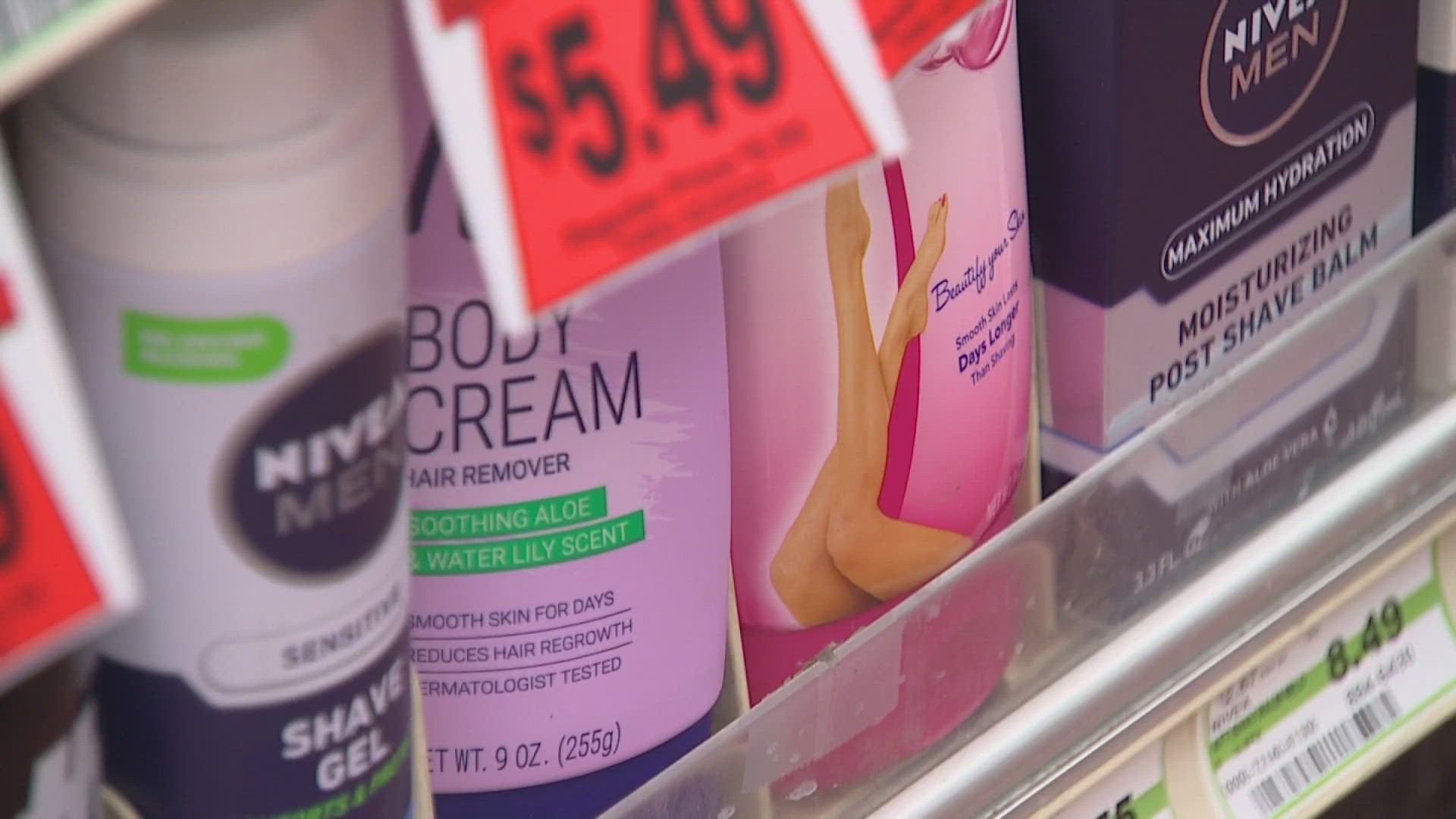OLYMPIA, Wash. — When companies price products higher because they are marketed to women, that is often referred to as the "pink tax."
A bill passed by the Senate on Tuesday would outlaw companies that operate in Washington state to charge different prices for substantially similar products marketed to men and women.
Products often included in this price discrepancy are razors, deodorant, body wash, feminine products and even car insurance.
SB 5171, sponsored by Sen. Manka Dhingra (D-Redmond), passed 27-21 on Tuesday and will move to the House for consideration.
“There’s no reason a product in a pink package should be more expensive than one in a blue package,” said Dhingra. “If there is a legitimate reason that one product is more expensive than another, like more expensive ingredients or more difficult manufacturing processes, those products would not be affected by this law."
Students from Lake Washington High School originally submitted the idea to Dhingra.
The students visited a Kirkland grocery store and documented several items, from vitamins to adult diapers, where the female versions were more expensive than those marketed at men.
”It doesn’t really matter how old you are. If you are passionate about an issue, you can make an impact,” said Lake Washington senior Bree Heuer, “We’re here at the state level, which is kind of crazy, because we just came from our high school AP government class.”
Watch an interview with the students who helped form this plan and their reaction to the bill passing the Senate below:
Even when price differences are small, they can add up over time. According to the California Commission on the Status of Women and Girls, repealing the tax could save women $1,300 a year for the same products men buy.
In 2020, women in Washington state made 80 cents for every dollar made by men, a disparity exacerbated by paying more for many consumer goods.
Based on existing law in New York and California, SB 5171 authorizes the attorney general to enforce the ban on discriminatory pricing. Companies could pay a penalty of up to $1,000 for each violation.
Retailers who pass along price differences charged to them by wholesalers wouldn’t be penalized under this legislation because legal liability falls on the business in the supply chain that originated the discriminatory pricing.
Any gender-neutral reason, including manufacturing costs, would be a legally acceptable basis for charging different prices.
In 2020, a bill passed in Washington that exempts feminine hygiene products from sales and use tax.
A report from the U.S. Government Accountability Office says there is no federal law in place that prevents companies from charging different prices for men’s and women’s products. According to the 2018 study, the personal care products that were most commonly found to be priced higher for women were deodorants, shaving creams, perfumes and body sprays.


